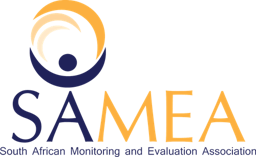SAMEA embodied the formalisation of the South African Evaluation Network SAENet. SAENet was an informal network aimed at building an active South African community of evaluators and others interested in evaluation.
SAENet was established after the well-known evaluator Prof Michael Quinn Patton visited South Africa in April 2002. Over 300 people from all sectors in South Africa and abroad attended his courses. During his visit, the need for the establishment of an evaluation network was identified. Zenda Ofir from Evalnet was tasked with taking the initiative forward. By the end of 2003, SAENet had developed into a vibrant M&E forum, counting 400 members.
The 3rd AfrEA Conference, held in December 2004 in Cape Town, provided an excellent opportunity to move the Network to a next phase of development. Zenda organised a special meeting with more than 70 South African Conference participants to plan the way forward for the next two years. The meeting`s discussions resulted in the establishment of a Task Team of 16 volunteers, which was given a mandate to formalise the conceptualisation, governance, operations, and key priority tasks of SAENet.
In the process of formulating a concept document, the organisation`s vision, mission, and objectives, feedback was invited from the South African community of evaluators and interested parties through a public stakeholder workshop and an online needs survey. Informed by this input, the Task Team-work resulted in the launch of SAMEA, the South African Monitoring and Evaluation Association, in November 2005.
Monitoring and Evaluation contribute to equitable and sustainable development in South Africa and more widely.
SAMEA cultivates a vibrant community that supports, guides and strengthens monitoring and evaluation as an important discipline and instrument for equitable and sustainable development.
1. Integrity - To act ethically, honestly, in good faith and best interest of the organisation.
2. Competence - To make informed decisions based on evidence, knowledge and skill, due care and diligence.
3. Responsibility - To take collective responsibility to provide strategic direction and manage the implementation of programmes.
4. Accountability - To be answerable for the execution of their responsibility to the Board and membership.
5. Fairness - To take a fair and inclusive approach to address issues of equity and social justice, consciously act against any form of social prejudice and discrimination.
6. Transparency - To be open and transparent in exercising their duties.
1. Provide a platform for interaction and information sharing among all those interested in M&E.
2. Promote high-quality intellectual, ethical, and professional standards in M&E.
3. Increase the use of M&E theory and practice.
4. Promote the development and adoption of M&E approaches and methods suitable to a South African and development context.
5. Promote post-graduate education and continuing professional development in the field of M&E.
6. Increase the profile of South African M&E at national and international levels.
7. Help build an understanding of international developments and trends in M&E.
8. Be a resource on M&E in South Africa.
